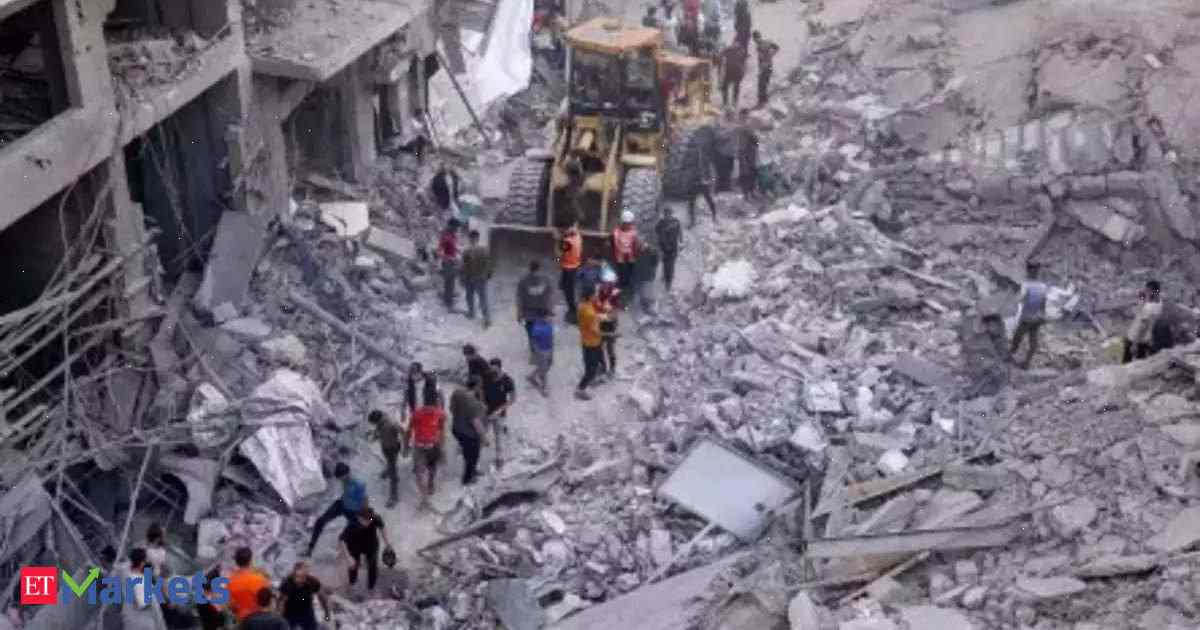The ongoing conflict between Israel and Palestine has had far-reaching consequences, extending beyond the immediate region to impact global financial markets. As tensions escalate and diplomatic efforts stall, investors and economists alike are bracing themselves for potential fallout. In this article, we’ll examine the historical context of the conflict, assess its current economic implications, and explore possible future scenarios.
Historical Context:
The Israeli-Palestinian conflict has been smoldering for decades, with various periods of relative calm punctuated by bursts of violence. The latest escalation began in May 2021, when tensions flared over the planned eviction of Palestinians from East Jerusalem. This event triggered widespread protests, military intervention, and a subsequent surge in violence. As the situation continues to deteriorate, concerns about the stability of the region and its economic prospects grow.
Economic Implications:
1. Tourism: The conflict has already taken a toll on tourism, a vital sector in both Israel and Palestine. Many countries have issued travel warnings, advising citizens against visiting the region due to safety concerns. This downturn in tourism has resulted in significant losses for local businesses, affecting employment rates and overall economic growth. 2. Trade: The ongoing hostilities have disrupted trade routes and supply chains, causing delays and shortages in goods transported between Israel, Palestine, and neighboring countries. This has led to increased costs and decreased efficiency in the movement of goods, further straining regional businesses. 3. Investment: Uncertainty surrounding the conflict has made investors increasingly cautious, leading to reduced foreign investment in both Israel and Palestine. This hesitation is understandable, given the risks associated with instability and potential economic sanctions. 4. Energy: The conflict has also affected energy production and distribution, particularly in Gaza. The area relies heavily on diesel fuel imports, which have been hampered by border closures and restrictions. This has resulted in frequent power outages, exacerbating hardships for residents and hindering industrial activity. 5. Financial Markets: The turmoil in the Middle East has had ripple effects on global financial markets. Investors are closely monitoring events, fearing potential spillovers into other regions. Oil prices have fluctuated amidst concerns over the security of crude supplies, while stocks in companies operating in the region have seen volatility.
Future Scenarios:
1. Continued Escalation: If the conflict persists, we can expect ongoing economic fallout. Further declines in tourism, trade, and investment will likely occur, deepening the economic slowdown in both Israel and Palestine. The broader geopolitical ramifications could lead to increased isolation of the region, making it harder for businesses to recover. 2. Diplomatic Solution: Efforts to resolve the conflict through diplomacy might stabilize the situation, potentially paving the way for economic recovery. However, a lasting resolution would require addressing deeply rooted issues such as borders, settlements, and the status of Jerusalem. Even if a peace agreement is reached, it may take time for investor confidence to return and for economic growth to pick up steam. 3. Regional Instability: The conflict could spread to nearby countries, drawing them into the fray. This scenario would heighten uncertainty, jeopardizing regional stability and prompting further economic contraction.
Conclusion:
The Israel-Palestine conflict has long been a source of humanitarian concern, but its impact now extends to the global economy. As the situation continues to unfold, it’s essential for policymakers, investors, and business leaders to consider the potential economic consequences. While a diplomatic solution remains the best outcome, preparing for alternative scenarios is crucial. By understanding the complexities of this crisis, we can better navigate its challenges and support a path toward stability and prosperity for all parties involved.

